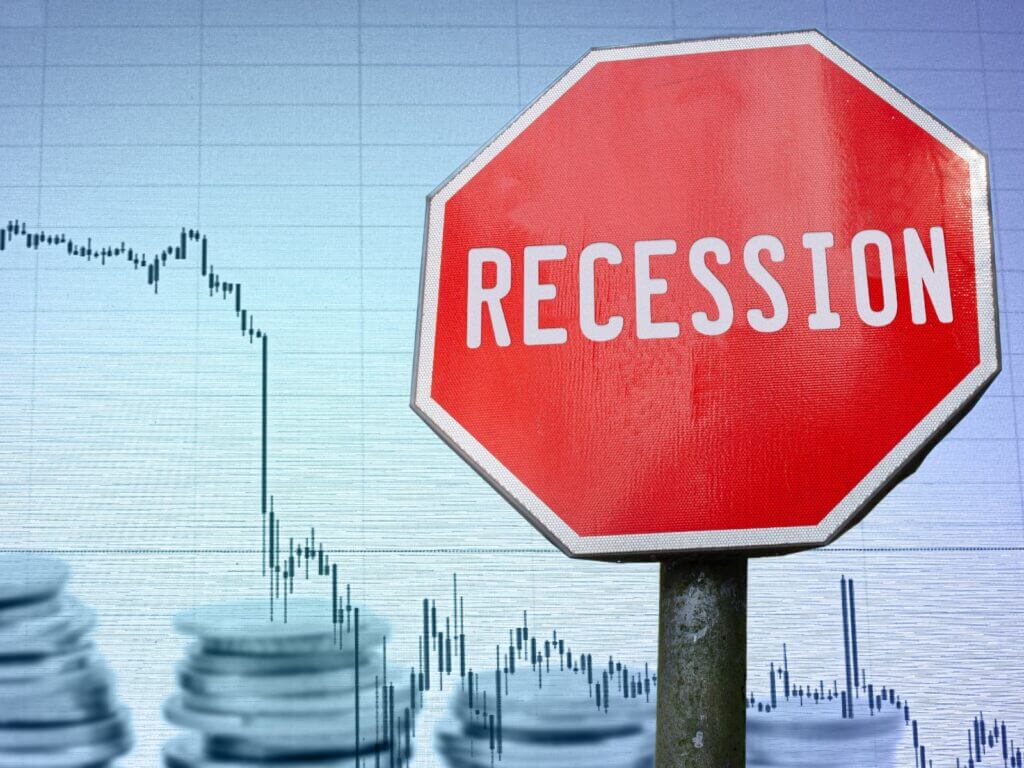
Will there be a recession this year, in 2023?
Economists have spent most of 2022 predicting whether the global economy would fall into a recession. Now there is a consensus that 2023 will see a recession.
A recession is a period of economic downturn, typically characterized by a decline in the gross domestic product (GDP), high unemployment, and a decrease in business activity. Recessions are generally considered a normal part of the business cycle but can significantly negatively impact individuals and businesses. The duration and severity of a recession can vary, with some lasting just a few months while others can last for several years. The most common measure of a recession is two consecutive quarters of declining GDP, but other factors, such as rising unemployment and falling business investment, can also be used to define a recession. In general, recessions are caused by economic and non-economic factors, including high levels of debt, inflation, and financial crises, as well as events such as natural disasters or political instability.
According to economists at Canada’s largest banks, Canada is heading towards a recession in the first quarter of 2023. They expect the economy to slow down further and enter a mild recession in the first half of 2023. Major U.S. banks are divided on their forecasts for a 2023 recession. J.P. Morgan, Bank of America, and Barclays all predict a mild or shallow recession beginning in the first half or spring of 2023. Goldman Sachs and Morgan Stanley have a more optimistic outlook, with Goldman Sachs stating there is a 35% chance of a U.S. recession in 2023 and Morgan Stanley expecting the U.S. to “just avoid” a downturn. Wells Fargo and PNC also hope for a mild recession starting in the mid-year or spring, with Wells Fargo noting that many foreign economies may also face a recession in 2023. Deutsche Bank predicts a recession in the second half of the year. Different banks in the U.S. have different predictions.
Although the labour market is tight, there is still a 50% chance of a recession in 2023 and a 75% chance of one occurring within the next two years due to rapid interest rate increases by the Federal Reserve and other central banks. Europe is more likely to enter a recession due to rising energy prices, while China is facing a collapsing property sector and a surge in Covid-19 cases following the decision to reopen the economy without a sufficient vaccination effort. Many countries’ economic issues are self-inflicted due to policy errors, including Europe’s reliance on Russian natural gas, China’s zero-Covid policy, and the U.S.’s relinquishment of leadership in the liberal international order and imposition of tariffs. In addition, there are signs that the “everything bubble” has burst, with falling stock prices, bonds, real estate, and emerging market assets.
We can prepare for recession by taking these steps – reduce spending, reduce debt, improve credit scores, increase emergency funds, strengthen resumes and broaden skills, and stay invested and diversify.

4 Reasons for an Economic Recession in 2023.
The possibility of a recession is currently one of the hottest issues in the financial press. According to economists, a global economic recession is predicted to occur this year. Moreover, in 2023, a third of the global economy, according to the International Monetary Fund, will be in recession.
A recession is typically seen as a period of at least two consecutive quarters of a severe, persistent, and widespread decline in economic activity. This drop can be noticed by examining a nation’s gross domestic output.
Recently, the catchy phrase “pasta bowl recession” was created to characterise the type of recession that might be in the works. The moniker refers to a recession that might be reasonably deep but shallow, like a pasta bowl. This view contends that if a recession does occur, it will probably endure a respectable amount of time but will be manageable due to conflicting economic statistics.
The recession this year is predicted by more than 80% of CEOs. According to the most recent CEO study conducted by KPMG, 86% of senior executives anticipate a recession within the next 12 months. the positive news is that Nearly 60% believe it will be light and brief. Additionally, more than 75% of CEOs said they already had measures to handle a downturn in the economy. In addition, 71% are optimistic about the future of the world economy.
Experts have identified four factors as potential indicators of an impending economic downturn in 2023.
1. Rising Energy Prices:
Ukraine’s unrest has worsened the global energy situation, pushing gas prices at the pump, and stressing the already overworked supply chains. Without significant changes to the geopolitical and economic environment, fossil fuel shortages appear to continue into the upcoming winter.
2. Increasing Interest Rates:
Economists have warned that the Fed’s interest rate increases could trigger a recession if not handled cautiously. According to a recent Forbes article, out of 54 countries surveyed, nearly all similarly tightened their monetary policy. Even more severe effects from these changes could trigger a global recession. Therefore, the economy can enter a recession if the Fed raises rates too quickly and excessively. For consumers and businesses, higher interest rates make the debt more expensive and borrowing more difficult.
3. Rising Unemployment:
According to the most recent jobs report, employment numbers are now low. However, prominent tech firms have already started to lay off employees. Companies are looking for strategies to deal with the sluggish demand for the products and services they offer; many have turned to mass layoffs of employees to reduce expenses. Unemployment may increase if the pattern persists, another indicator of a recession.
4. Uncertainty and Instability Around the World:
Instability in geopolitics and Global uncertainty may be the main factor causing a recession in 2023. For example, the Ukraine war is expected to continue longer than expected. In addition, the increasing tension between China and Taiwan can further increase instability.
Recession will practically impact every nation because of how interconnected the world’s economies have become.
